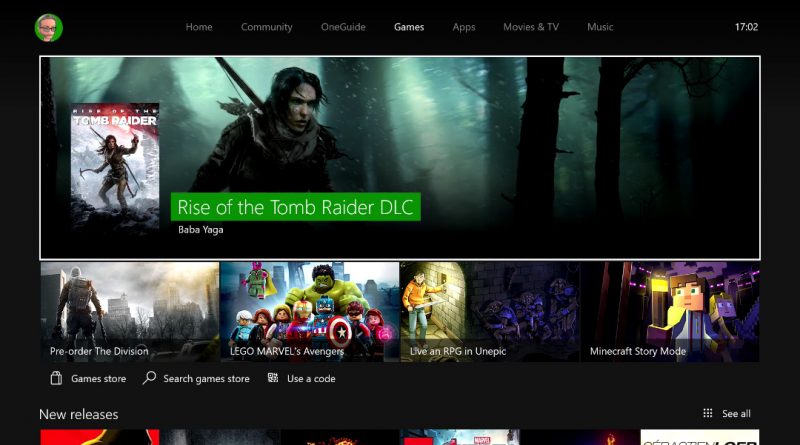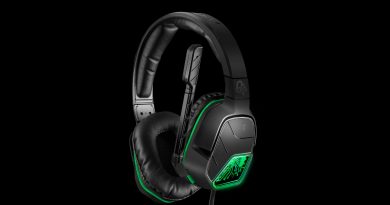Opinion | How should we buy our games?
Pretty much everyone recognises that Xbox got it wrong at the 2013 Xbox One reveal, and misjudged their audience terribly. A failure to talk about games, an always connected console, and a complex digital game share feature that no-one could understand (least of all the execs trying to present the idea) left people confused and bemused. Suddenly the last-gen winner was on the back foot and Sony was guaranteed a head start this time around, as long as they didn’t fall over their own feet.
Phil Spencer and his team have largely restored gamers’ faith in Xbox – 19 million units sold (more than 360 had at the same stage in its life, but much fewer than PS4) isn’t to be sniffed at.

What I find interesting, though, is that (allegedly) Microsoft wanted to go much further down the digital road. There are rumours that some concept designs for the Xbox One omitted an optical drive all together. The first digital only console from a major manufacturer? Very nearly. And maybe Microsoft wasn’t so misguided – perhaps, in fact, they were ahead of their time. Valve’s Steam Store shows that digital sales on PC work very well, and in 2015 digital sales on consoles rose 34% on the previous year – a tremendous uptake. Let’s look at how we buy our games.
Bricks ‘n’ Mortar
We used to buy almost all our stuff this way. But times have changed. It’s not the cheapest way to buy games – sometimes it’s the priciest. You don’t have to look hard to find reports spouting multiple variations on a theme of ‘The Internet is Killing our Town Centres’, and UK specialist GAME has gone under once already.
It can be a nice experience, though. I can go into my local store and see the shiny things, touch the shiny things. I can have a conversation with someone who knows and understands their products (my local GAME store is very good – your own experience may vary). You can have a relationship with a retailer – they’ll tweet @ me if there’s an exclusive they think I’ll like. And of course, if you really, really must have that new game the minute it’s out, there’s no better way than a midnight launch (though digital pre-purchase and pre-download is cutting into this area, too.) It’s this ‘added value’ that is one of the things that can save specialist shops (alongside the preowned market), especially independents.

There are bargains to be found. If you don’t mind Killing Your High Street a little more, you can often pick up the best price at your not-so-local supermarket. Some of them are open 24 hours a day, seven days a week (though even that is changing) so you can scratch that new game itch any time you feel it.
The Internet
Find a thing, buy a thing, and someone appears at your door with that thing. Sometimes the same day! Great. You can look for a bargain without leaving the house. You can shop at work when the boss isn’t looking. What’s not to like?
Very little. Online retailing has come a long way from the early days. But, there’s just something… hollow about it. Sure, we can put that to the backs of our minds when we are grabbing a bargain. We’re getting a physical product we can hold and touch and caress and put on a shelf and admire and share with our friends.
But mostly we have to wait a day or longer. Delayed gratification. Even watching the download progress bar on a digital purchase is better than compulsively refreshing the courier’s website to check the progress of your delivery.
Digital store
The rise of digital shouldn’t come as a surprise. Look at other industries. Netflix shows that the majority of us are quite happy to have our TV and film content streamed – practically ending the physical video rental business forever. Our books are delivered from the cloud straight to our e-readers. Why shouldn’t digital delivery of our games be the norm?
At the casual end of the market – it already is. Games on our phones are delivered digitally, and set top boxes like Apple TV are getting in on the act, too. We already mentioned Steam for PC games – digital delivery has made it easy for indies to get their games out there without the risk associated with manufacturing and transportation costs. Without it, games like That Dragon, Cancer and You are the Reason might never get made at all.

And digital games are great! Your whole collection there at the press of a button. No changing discs, no dealing with optical media that worked last time but now just won’t play ball. We’re fans.
But it’s not there yet – in part because of cost. It can feel that digital versions of physical titles are overpriced, especially at launch. Whilst manufacturing and distribution costs for your average AAA title don’t contribute massively to the price you pay at the counter, they are a factor. You would expect digital versions to be at least little bit cheaper.
That’s not to say things aren’t improving. We’ve seen some significant discounts in the Xbox Store recently – watching out for regular sales is definitely a way of keeping costs down. Far Cry 4 for £16, with all the DLC? Yes please.
Choices, choices
I buy my games everywhere. I picked up my Halo 5: Guardians Limited Collector’s Edition at Game, and I even let them upsell me the two special edition Halo controllers. I’ve preordered The Division from Amazon, and having played the Beta I’ll keep my fingers crossed that Amazon pixies can get the game to me on launch day. I picked up Super Smash Brothers Melee for the Wii U on a whim one day in Tesco as it looked like a bargain.

But in the main I build my collection digitally. Alongside my Games with Gold and PlayStation Plus games, I’ve recently picked up Far Cry 4, Rise of the Tomb Raider, Borderlands: The Handsome Collection, Wolfenstein, The Witcher 3, Project Cars and Gears of War: Ultimate Edition. And a ton of ID@Xbox games, too.
Digital is the future. I’m there already. Come join me, why don’t you?
How do you buy your games? And why? Let us know in the comments!




